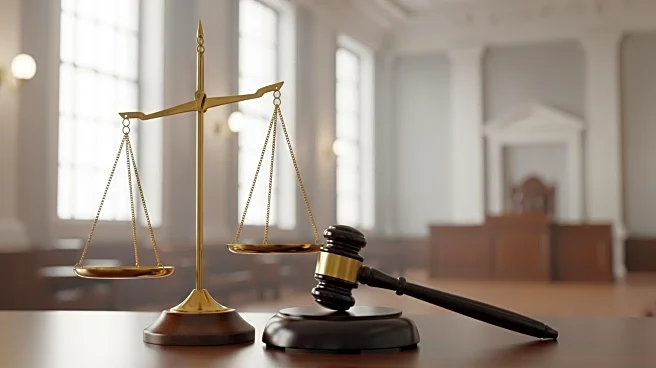What's Happening?
Supreme Court Justice Amy Coney Barrett has released a memoir titled 'Listening to the Law,' where she defends her vote to overturn Roe v. Wade, a landmark decision that had established national abortion rights for nearly fifty years. Barrett argues that Roe v. Wade overstepped the will of the American people and asserts that the Supreme Court's role is to respect the choices agreed upon by the populace rather than dictate them. Her book, set to be published on September 9, provides insights into her decision-making process and the dynamics within the Supreme Court. Barrett, appointed by President Trump, has become a pivotal figure on the court, influencing oral arguments and decisions. Her appointment contributed to the conservative majority that led to the reversal of Roe v. Wade in the 2022 Dobbs v. Jackson Women’s Health Organization case.
Why It's Important?
The publication of Barrett's memoir is significant as it offers a rare glimpse into the thought process of a Supreme Court Justice who played a crucial role in reshaping abortion rights in the U.S. The overturning of Roe v. Wade has had profound implications for women's rights and healthcare access across the country, leading to varied state-level responses and legal battles. Barrett's defense of the decision highlights the ongoing debate over judicial power and the interpretation of constitutional rights. Her book may influence public opinion and legal discourse, especially as the Supreme Court continues to navigate contentious issues under a conservative majority.
What's Next?
Barrett's memoir may spark further discussions and debates regarding the Supreme Court's role in shaping public policy and individual rights. As the book is released, it is likely to attract attention from legal scholars, policymakers, and activists, potentially influencing future judicial appointments and legislative actions. The conservative majority on the Supreme Court may continue to face scrutiny and challenges as they address other divisive issues, including those related to healthcare, civil rights, and executive power.
Beyond the Headlines
Barrett's reflections on the Supreme Court's decision-making process and her personal beliefs offer insights into the ethical and moral considerations that justices face. Her acknowledgment of the tension between personal convictions and legal obligations underscores the complexity of judicial responsibilities. The book may also contribute to discussions about the influence of religious beliefs on judicial decisions, a topic that has been contentious in Barrett's career.








